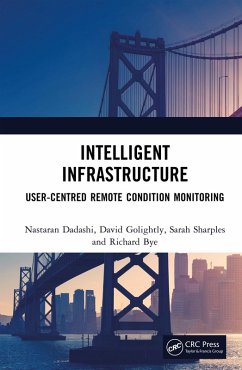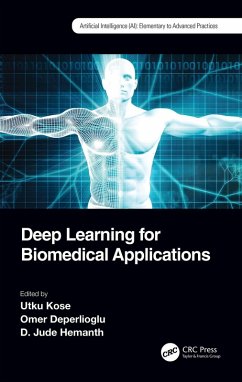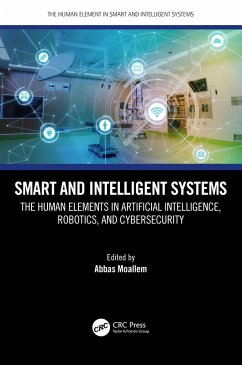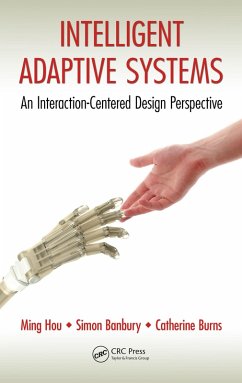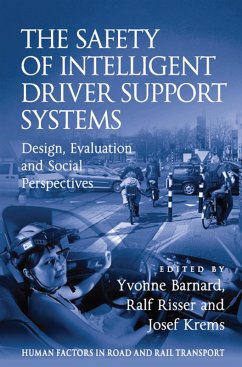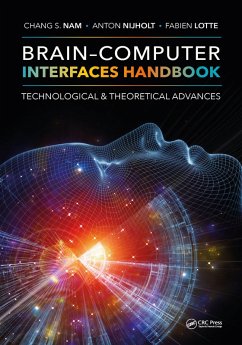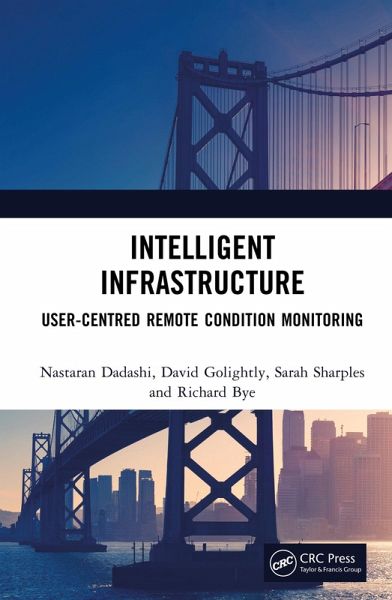
Intelligent Infrastructure (eBook, ePUB)
User-centred Remote Condition Monitoring
Versandkostenfrei!
Sofort per Download lieferbar
44,95 €
inkl. MwSt.
Weitere Ausgaben:

PAYBACK Punkte
22 °P sammeln!
With the development of sensor technology, wireless communications, big data, and machine learning, there is an increasing interest in technologies and solutions that assess and predict the state of equipment and assets within various industrial settings. These technologies aim to collect information from multiple sources about infrastructure asset status. Then, through current and historical data analysis, this configuration of technologies delivers intelligence on current and future asset status to a maintenance operator or manager to inform optimal maintenance decision-making. These technol...
With the development of sensor technology, wireless communications, big data, and machine learning, there is an increasing interest in technologies and solutions that assess and predict the state of equipment and assets within various industrial settings. These technologies aim to collect information from multiple sources about infrastructure asset status. Then, through current and historical data analysis, this configuration of technologies delivers intelligence on current and future asset status to a maintenance operator or manager to inform optimal maintenance decision-making. These technologies are known under different terms - remote condition monitoring, e-maintenance, prognostic systems, predictive maintenance, and smart or intelligent infrastructure. Despite the promise of remote condition monitoring and predictive technologies, there is a growing concern with such technologies because they can be difficult or impractical to use.
Understanding and mitigating potential human factors issues could ensure that such vast investments are not wasted. This book considers, in depth, the challenges placed on users of current and future condition monitoring systems. Its primary focus is to understand the cognitive processes, including managing alarms, interpreting data, and collaborating with automation. The book describes a range of human factors methods that can be used to understand the current and future functioning of people and technology in an enhanced maintenance and asset monitoring context. The book also presents a framework for describing these issues systematically and presents the resulting design considerations to increase the effectiveness of individual operators and organisations as a whole.
Understanding and mitigating potential human factors issues could ensure that such vast investments are not wasted. This book considers, in depth, the challenges placed on users of current and future condition monitoring systems. Its primary focus is to understand the cognitive processes, including managing alarms, interpreting data, and collaborating with automation. The book describes a range of human factors methods that can be used to understand the current and future functioning of people and technology in an enhanced maintenance and asset monitoring context. The book also presents a framework for describing these issues systematically and presents the resulting design considerations to increase the effectiveness of individual operators and organisations as a whole.
Dieser Download kann aus rechtlichen Gründen nur mit Rechnungsadresse in A, B, BG, CY, CZ, D, DK, EW, E, FIN, F, GR, HR, H, IRL, I, LT, L, LR, M, NL, PL, P, R, S, SLO, SK ausgeliefert werden.




